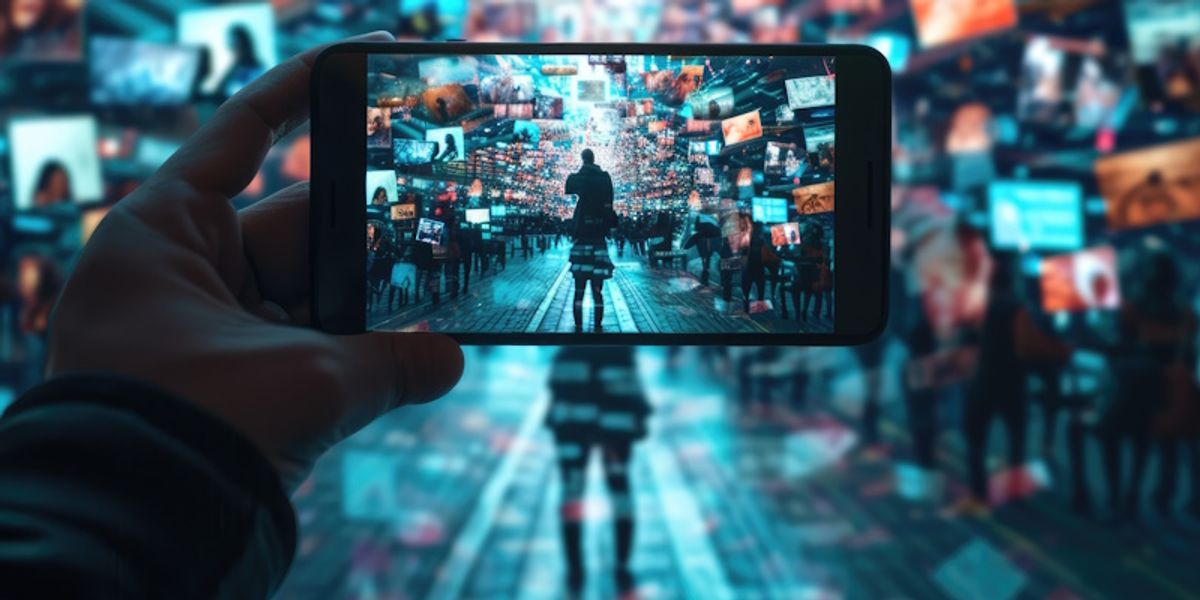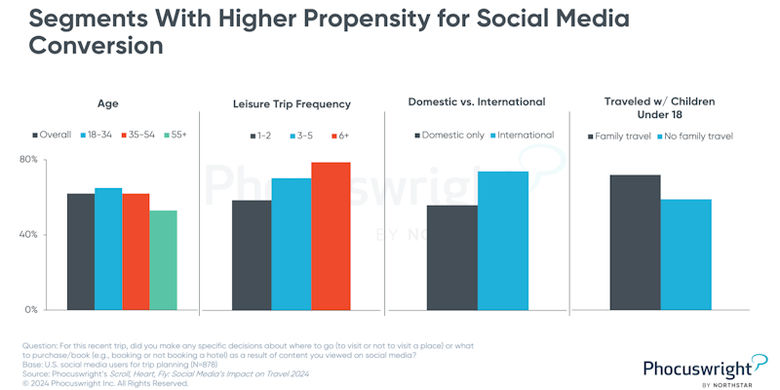Knowing which travel consumers are more likely to be influenced by social media could help travel marketers get in front of those users and encourage them to book.
Likes and shares on platforms are great but the all important conversion from a social media platform has so far evaded travel companies.
A new report from Phocuswright revealed that two in three travelers under 55 say they converted due to social media content they looked at for a recent trip.
In addition, the F is for Funnel: Social Media and the Path to Travel Purchase study showed that frequency of travel also impacts the likelihood to convert through social media with frequent travelers using more digital tools, including social media, for trip decisions.
Some travel companies are already paying attention to social media trends. Earlier this year, GetYourGuide announced it was hiring a full-time content creator for TikTok.
More recently, Singapore-based Klook said it had sealed a partnership to integrate booking capabilities with TikTok.
Discussing Klook’s news on LinkedIn, tours and activities specialists, including Magpie Travel founder Christian Watts, questioned whether travel companies would be able to connect the various parts of the funnel to get to conversion.
Others said suppliers would need to be educated on video marketing.
“Video marketing follows the same dreaming, planning, booking, experiencing, and sharing phases of travel.” said travel and tourism advisor Peter Syme.
“Video needs to be produced for all these phases except experiencing. AI will mean that video has to be produced differently depending on the desired outcome as AI will scrape the video and create itineraries and things to-do lists. Watch for video reviews exploding in the sharing phase.”
He added that Google would most likely bring everything together soon and then booking on YouTube, which Klook is also working with, would “become normal.”
“This is not an easy challenge to solve for OTAs when you have 30k-100k suppliers and several 100k of experiences,” Syme said.
Subscribe to our newsletter below
Klook has made no secret of its plan to target millennials with the launch last year of its Kreator initiative, an affiliate program connecting providers with travelers. The move is of little surprise given that more than 60% of millennials, or 1.1 billion, globally are said to reside in Asia.
In addition, in July a media report revealed that TikTok was testing local services, including travel, in Southeast Asia.
Further insights from the Phocuswright report showed that social media users are collecting information on travel options before they have even marked dates in their diaries.
And it revealed that two in three of consumers who used social media for trip planning said that, for their most recent trip, they made a trip purchase or visitation decision as a result of content they viewed. Furthermore, gender and household income made no impact on social media’s influence on travel decisions.
The study also found that international travelers are more likely to make decisions after seeing social media content than their domestic counterparts.
Learn more!











